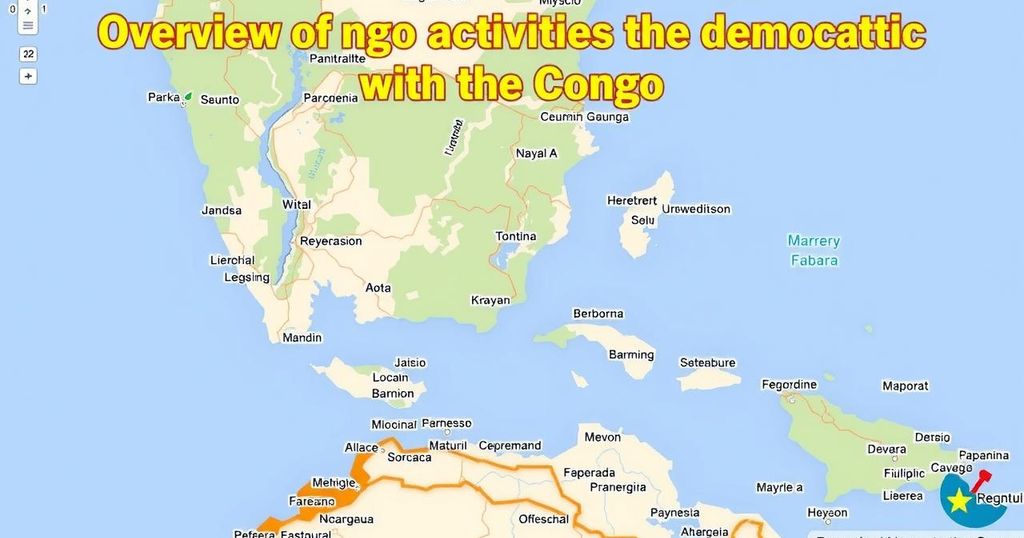September 2024 Overview of NGO Incidents in Volatile Regions

In September 2024, INSO reported 114 incidents involving NGOs, a slight decrease attributed to reduced incidents in the DRC and Nigeria. However, serious risks persist, including fatal incidents in Ukraine and the DRC. Other notable incidents included an IED explosion in Somalia, governmental interference in Sudan, and ongoing conflicts affecting humanitarian access in the Middle East.
In September 2024, the International NGO Safety Organization (INSO) documented a total of 114 incidents involving non-governmental organizations (NGOs), marking a slight decline attributed to reduced incident volumes in both the Democratic Republic of the Congo (DRC) and Nigeria. However, the occurrence of fatal incidents in both Ukraine and the DRC underscored the specific risks that NGO workers encounter in these contexts. In Nigeria, significant flooding in the northeastern region is thought to have contributed to a decrease in organized armed group (OAG) and criminal activities impacting NGO personnel. Furthermore, ongoing operations by OAGs and governmental entities have impeded access for humanitarian efforts. In Somalia, an improvised explosive device (IED) planted by Al-Shabaab (AS) injured two civilians at an NGO project site located in Jubaland, highlighting the perilous environment faced by NGOs. Similarly, in Sudan, incidents of the Rapid Support Forces (RSF) detaining NGO staff indicate a growing trend of interference with humanitarian efforts. Meanwhile, in Mozambique, governmental operations against the Islamic State in Mozambique (IS-M) have resulted in new access challenges as IS-M members reportedly reorganize in the southern regions of the country. In the broader Middle Eastern context, while Lebanon has become a focal point of attention, escalating violence in the West Bank compounded by a large-scale Israeli operation in Gaza City raises significant concerns about humanitarian access and safety.
The context for this report is shaped by ongoing conflicts and humanitarian crises in various regions, particularly in Africa and the Middle East. The DRC has long been beset by violence and instability, impacting the operational environment for NGOs. In Nigeria, seasonal flooding has had profound effects on both the local population and the activities of NGOs. Similarly, in Somalia, the persistent threat posed by Al-Shabaab continues to jeopardize humanitarian efforts. The RSF’s actions in Sudan, along with the resurgence of IS-M in Mozambique, further complicate the situation for NGOs. Lastly, the evolving conflict in Gaza and increasing tensions in Lebanon and the West Bank underscore the fragile security environment faced by humanitarian organizations. Each incident recorded by INSO serves as a crucial indicator of the risks inherent in providing aid in these volatile regions.
The overview of NGO incidents in September 2024 reveals a complex landscape marked by both declining overall incident reports in certain areas and an alarming prevalence of deadly encounters in others. The specific threats faced by NGO personnel due to armed groups and governmental operations remain pronounced in multiple regions, notably the DRC, Nigeria, Somalia, Sudan, and Mozambique. Furthermore, ongoing violence in the Middle East presents additional difficulties for humanitarian access. It is vital for NGOs operating in these contexts to remain vigilant and adaptable in response to the evolving security challenges that affect their missions.
Original Source: reliefweb.int








